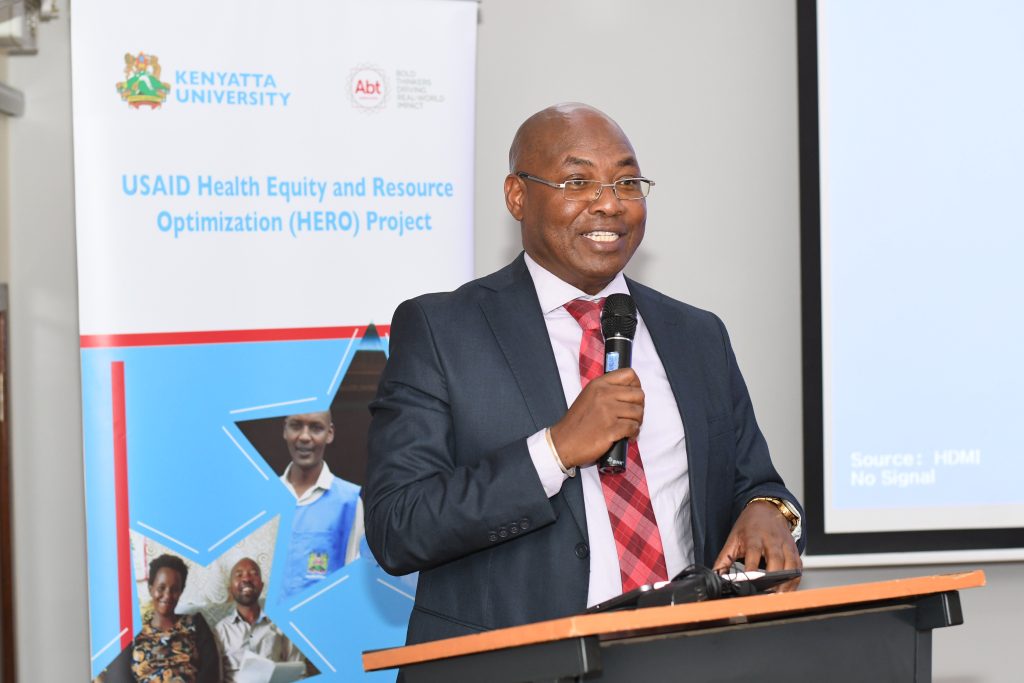
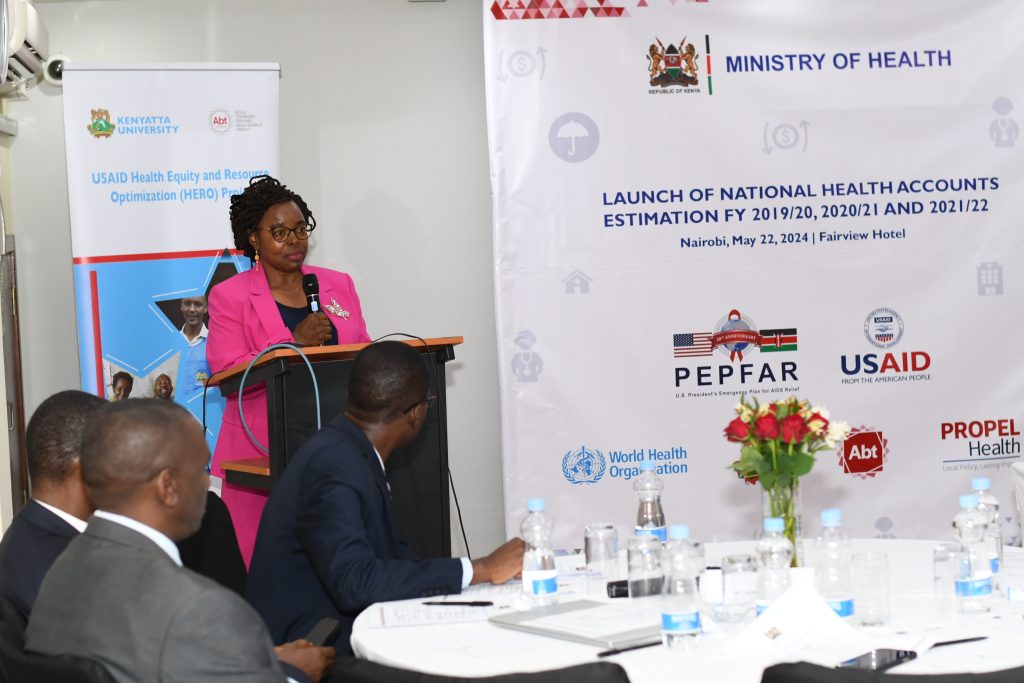
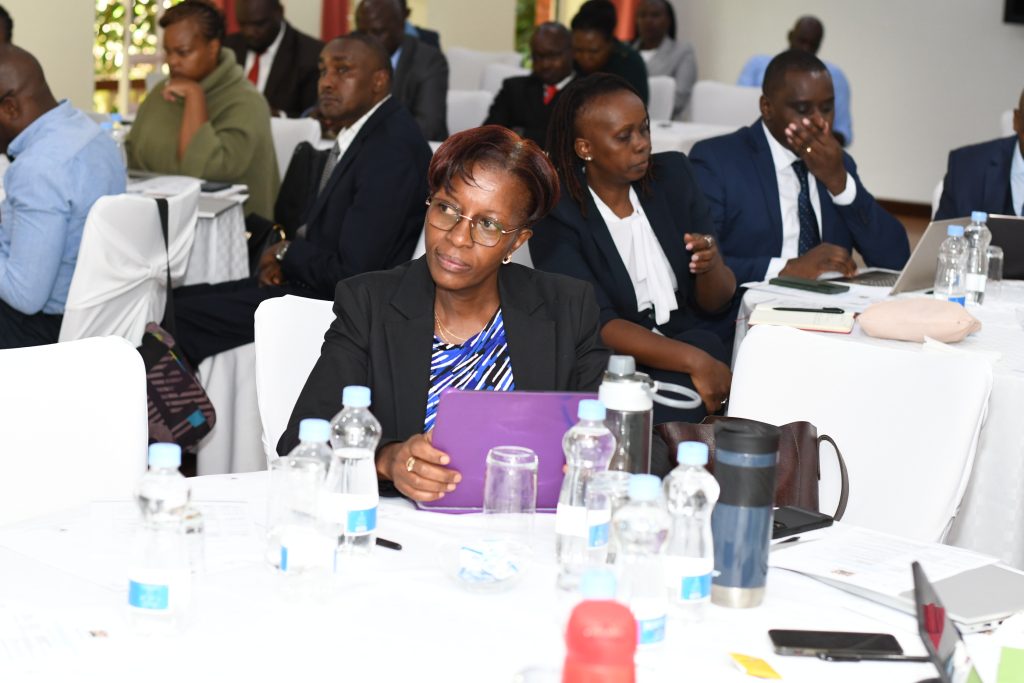
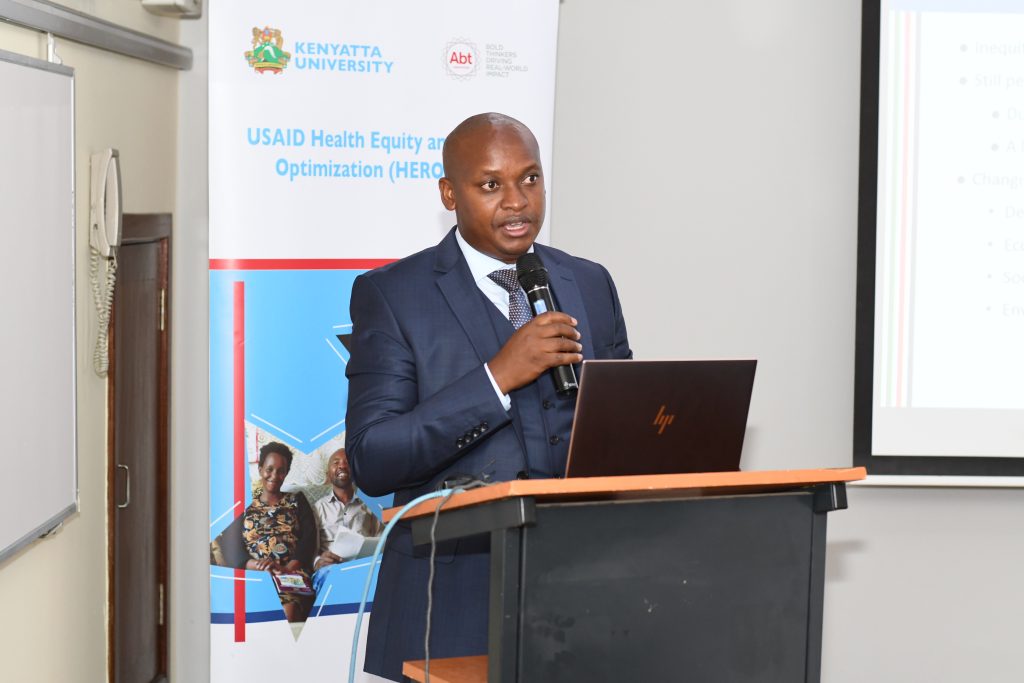

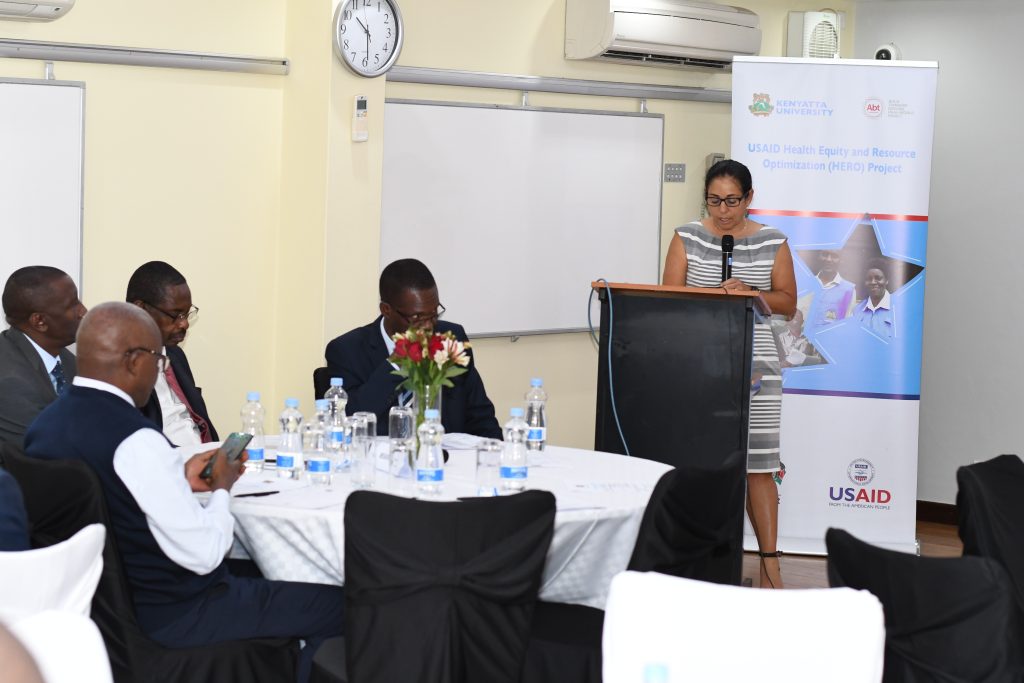
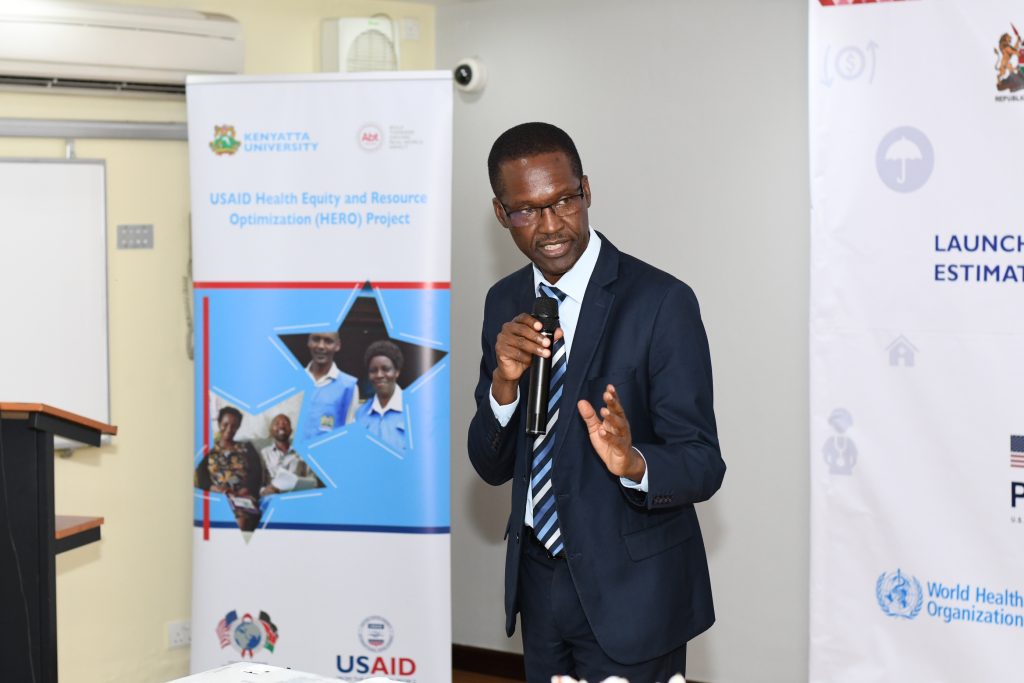
On May 22nd 2024, USAID Health Equity and Resource Optimization (USAID HERO) project supported the national Ministry of Health to launch Kenya’s National Health Accounts (NHA) Estimates for the financial years’ 2019/20 to 2021/22. This event was graced by the Principal Secretary for Medical Services, Harry K. Kimtai who officially launched the National Health Accounts Estimates Report. The event underscored the government’s dedication to enhancing health services and ensuring equitable healthcare access for all Kenyans.
What is National Health Accounts?
Globally, the system of health accounts is accepted as an accounting framework for systematically tracking health spending. Time trends of overall health spending and its components guide future policies and investments to make health systems more responsive to people’s needs. They are essential for improving the performance of health systems while enhancing transparency and accountability. Find out more in the World Health Organization website.
In his address, PS Kimtai emphasized that health is a fundamental right enshrined in the Kenyan Constitution, ensuring every citizen the right to the highest attainable standard of health. He reiterated the Ministry of Health’s commitment to implementing policies and measures to progressively achieve these rights.
The Principal Secretary highlighted significant progress made under the Vision 2030 initiative, particularly in improving healthcare quality and accessibility. He pointed out several achievements, including free treatment for HIV/AIDS, malaria, and tuberculosis patients, which have contributed to a reduction in child and maternal mortality rates.
PS Kimtai also discussed the government’s Bottom Up Transformation Agenda (BETA) aimed at achieving universal health coverage (UHC). USAID HERO project is supporting the government through collaboration with line ministries to strengthen health and social protection systems. The project works to build capacity of both national and county systems for increased optimization of available resources and use of social protection tools. This includes building capacity of county governments, local civil society organizations and national programs on key areas like program based budgeting, budget advocacy and use of social protection tools like the single registry.
By doing this, the project creates a hub for knowledge access on health financing through evidence generation. A key objective is to increase use of data and evidence in decision making by healthcare workers, planners and policymakers across both levels of government. The NHA Estimates will therefore provide data to guide investment and decision making in health in Kenya. Already Ministry has initiated reforms focused on human resources for health, health products and technologies, integrated health information systems, and healthcare financing.
The launch of the NHA Estimates Report provides valuable data for benchmarking, accountability, and evidence-based policymaking. It will aid in resource mobilization, service utilization, and fund allocation, contributing to better health outcomes for the population. The development of the NHA process included USAID HERO among other strategic partners like the WHO, USAID, JICA and PROPEL.
This article was originally posted by the Ministry of Health and revised by the USAID HERO project.
